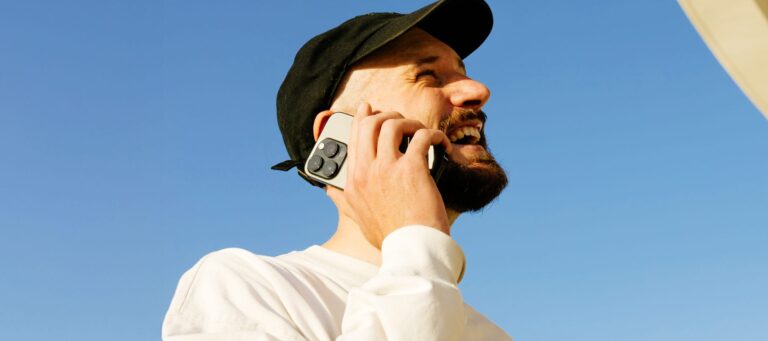Summer vacation is just around the corner. Are you going on a nice trip? There is a good chance that you will take your phone with you. Pay attention to your digital security. For example, when using public Wi-Fi networks. Sounds attractive, but it is not always safe. Read here how this is possible and how you can use free Wi-Fi networks safely.
These are public Wi-Fi networks.
Public wifi networks are networks in public places. Like at the station, in a restaurant, or a hotel. Often, you can use them for free. Handy if you are somewhere where you can’t use your bundles.
Are public Wi-Fi networks safe?
Often yes. Not always. As a user, you assume that the owner of the location offers a public wifi network. That is not always the case. Cybercriminals can also manage a wifi network to gain access to the data of people who use it. This is the man in the middle way.
3 Dangers of Public Wi-Fi Networks.
There are several dangers you run when you use the internet via an unsafe network. These are the most important ones.
Danger 1: Access to your data and information.
With a man-in-the-middle approach, internet traffic runs via the devices of cybercriminals. They can then view the content of this traffic. Information that hackers can use to earn money or steal money from you.
Danger 2: Access to your accounts.
The danger of unsafe public Wi-Fi networks is that others can see your login details. This way, they can log in to your online accounts. How do you prevent this? Simple. Secure your accounts with two-step verification. Read here how two-step verification works.
Danger 3: Installation of malware.
On a public, unsafe Wi-Fi network, cybercriminals can try to install malware on your device remotely. These are programs that, for example, track your keystrokes. This way, they can find out your password, for example.
How do you know if a public WiFi network is safe?
It is smart to be careful with public wifi networks. And to do a few checks beforehand. This is how you check if a wifi network is safe:
- Check the name. Check that the name of the network matches what the owner says it is. Be careful if a network is called ‘Free WiFi’ or ‘Public WiFi’.
- Check if it is secured with a password. Secure public networks often have a password. You can ask the staff for this, or it is stated inside the location. There is a good chance that wifi networks without a password are less secure.
3 tips to use public Wi-Fi networks more safely.
Even with the 2 checks above, you can never be sure that a public wifi network is really safe. Still, you can use them. With these 3 tips, you can do that extra safely.
Tip 1: Use apps instead.
It is smart not to use the browser on a public wifi network to surf the internet. Use apps instead. They often encrypt your data by default. For example, internet banking apps do this, as do most social media apps.
Tip 2: Don’t shop online.
Do not log in anywhere via your browser, and do not go shopping online. This wa,y your data may end up in the hands of internet criminals. It is wise to do this only via secure networks or via the mobile network.
Tip 3: Use a VPN.
Are you using an unsecured, public Wi-Fi network? Use a VPN. This stands for Virtual Private Network and encrypts all the data you send or receive. That way, no one can see the content. Not even via an unsecured, public Wi-Fi network.
How do you turn on a VPN?
You use a VPN via a VPN app. You can download these for iPhone via the App Store and for Android phones via the Google Play Store. Some good VPN apps are ProtonVPN, AirVPN, and Mullvad.
These apps do cost money, often a few euros per month. This is because these apps have servers worldwide to encrypt your internet connection. Once downloaded, such an app works easily. You open the app, and with a push of a button, you connect to the VPN network. Then you are online via this secure connection.
Good alternative to public wifi: mobile internet.
Are you going on holiday to a country where you can simply use your bundles? Then, do not use public Wi-Fi networks, but mobile internet. This is possible with the MBs from your internet bundle, and this connection is secure. You are directly connected to the network of your provider. No one is in between. Not even internet criminals.








